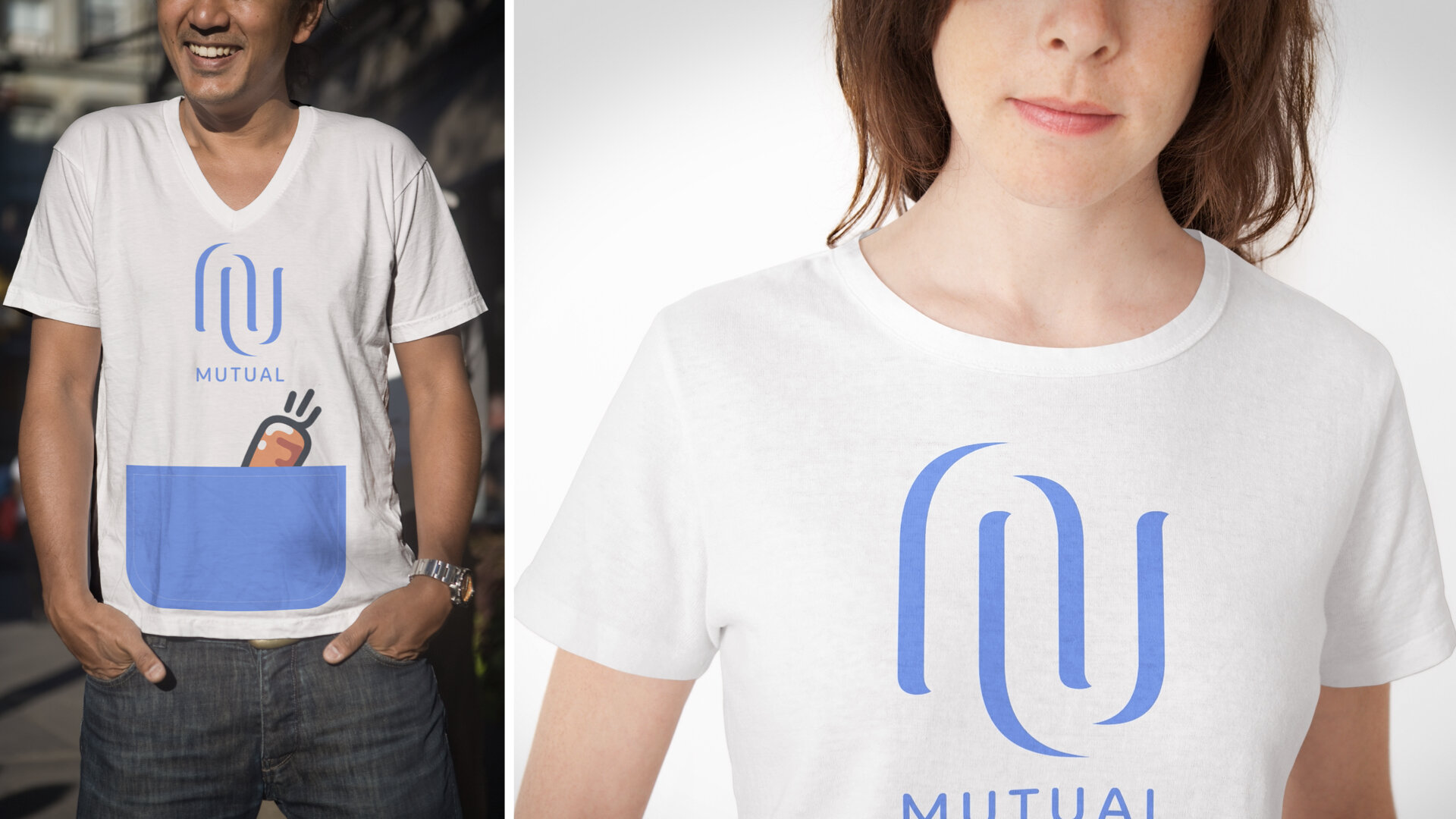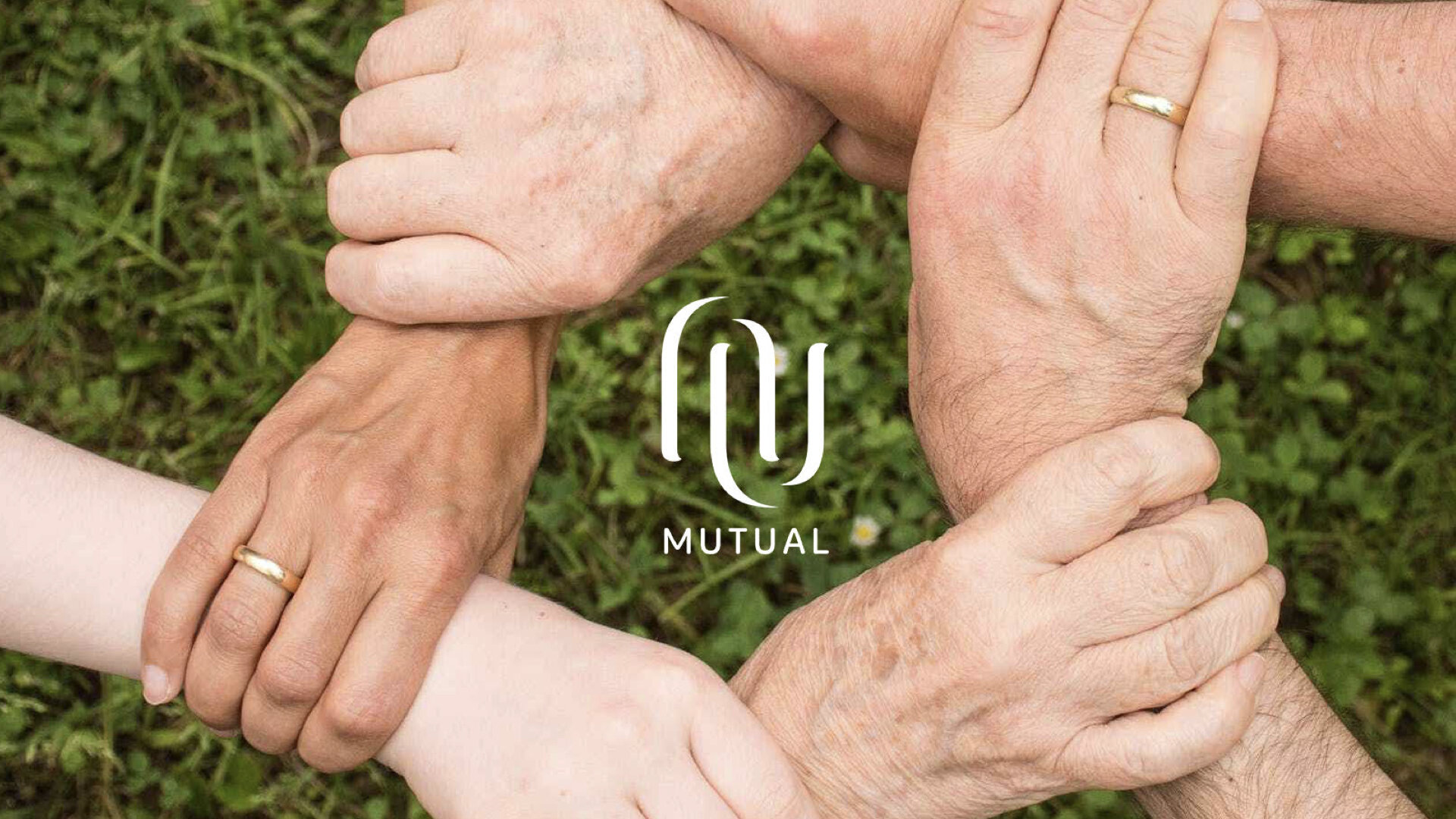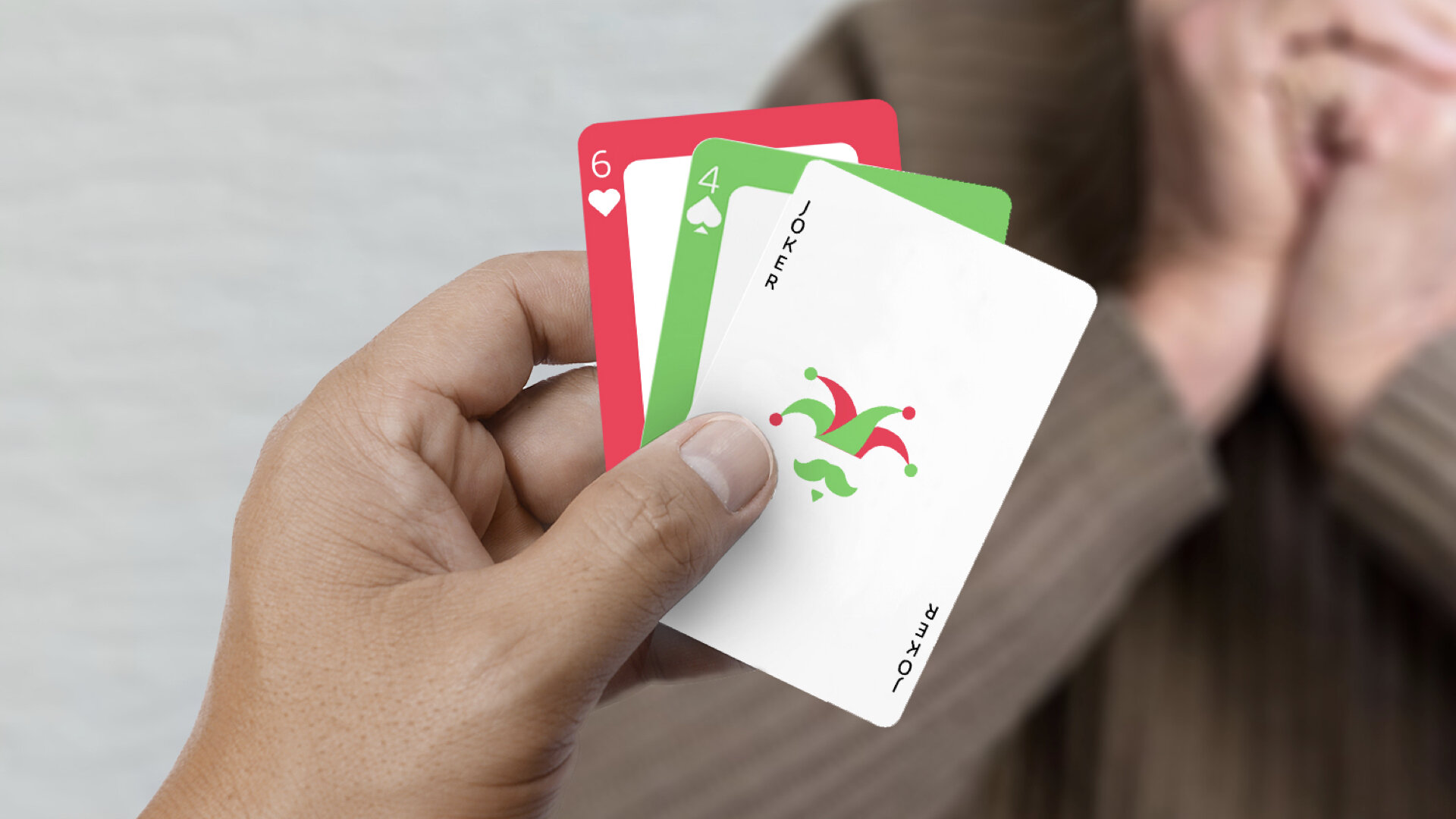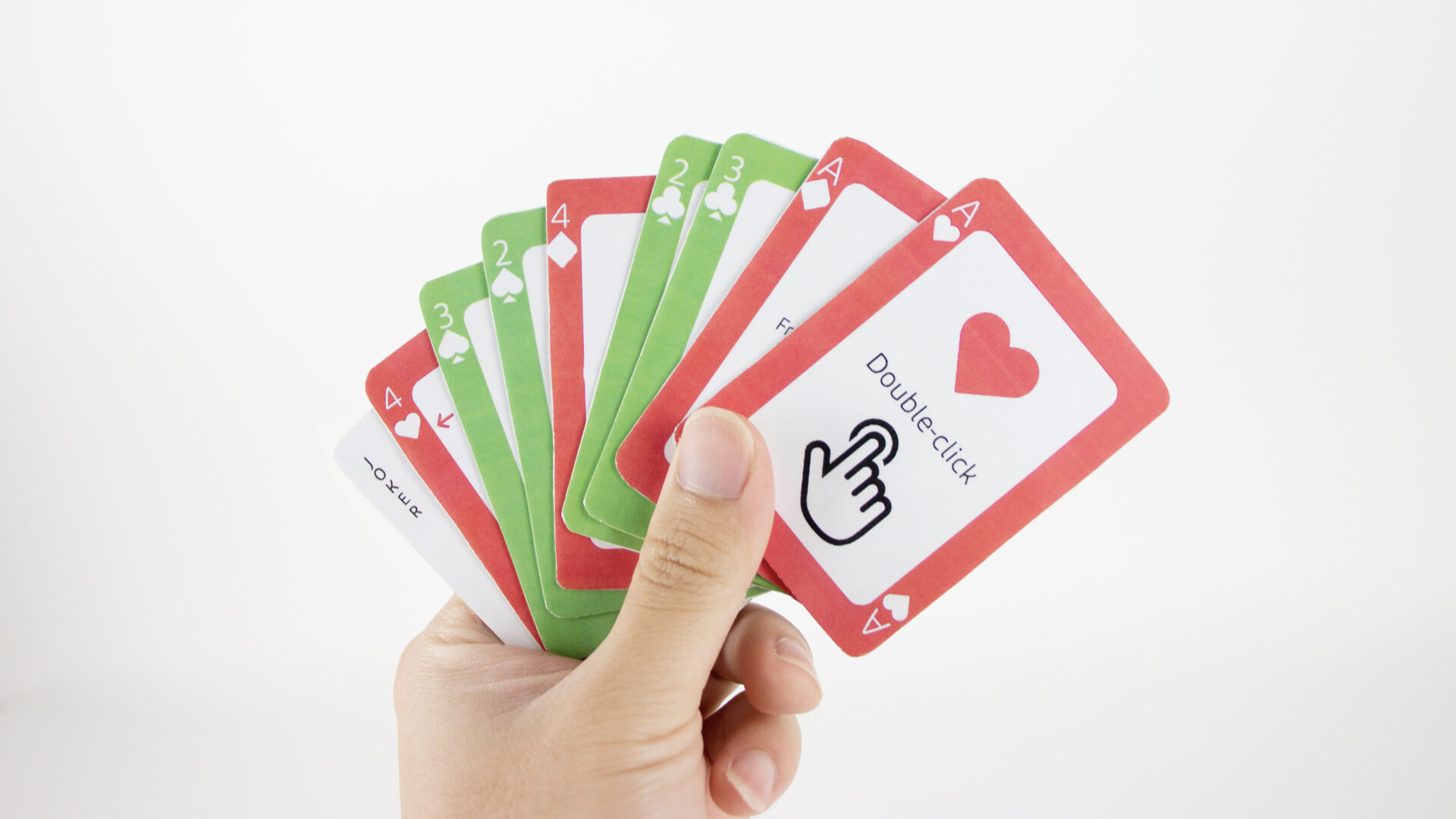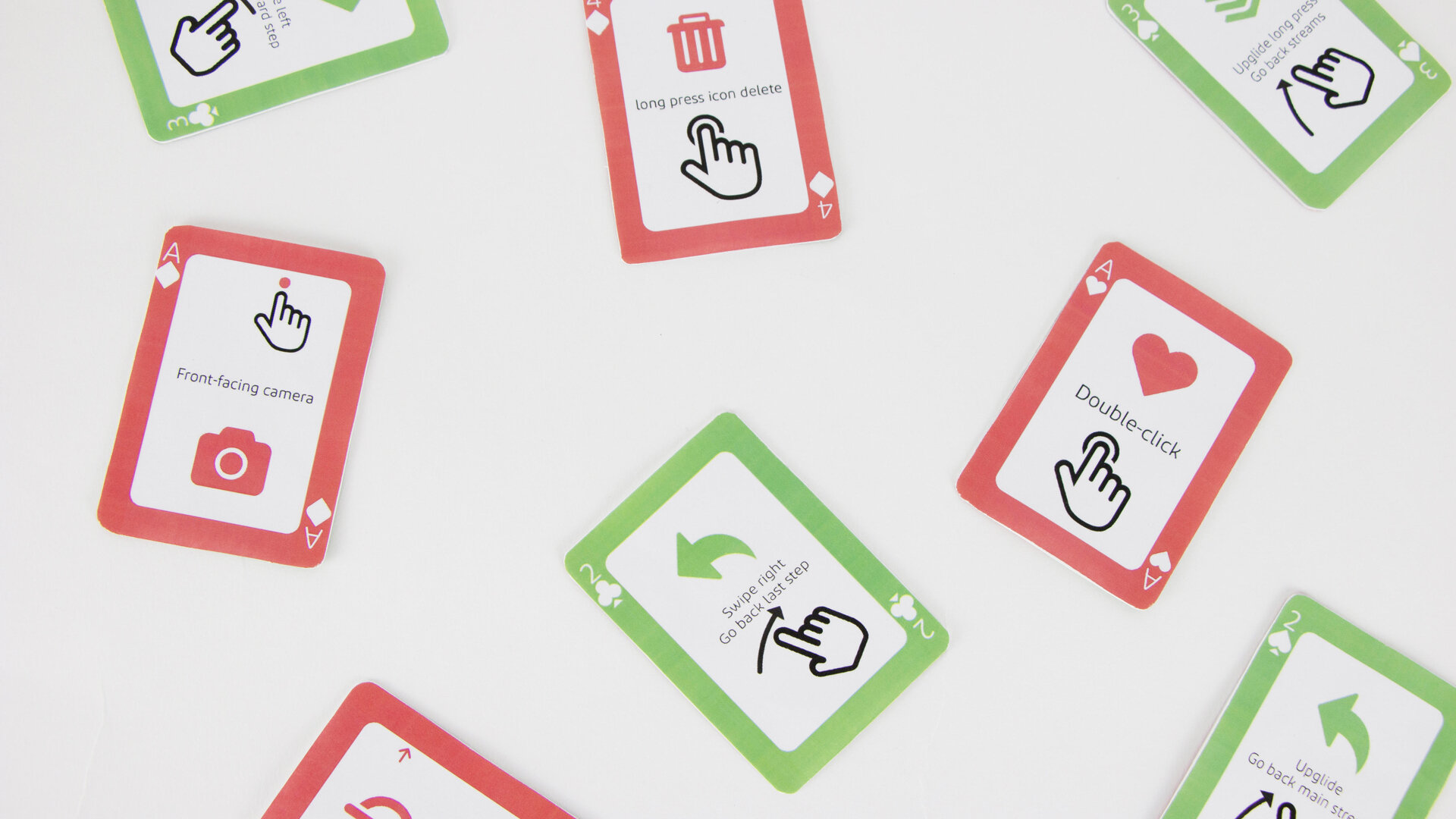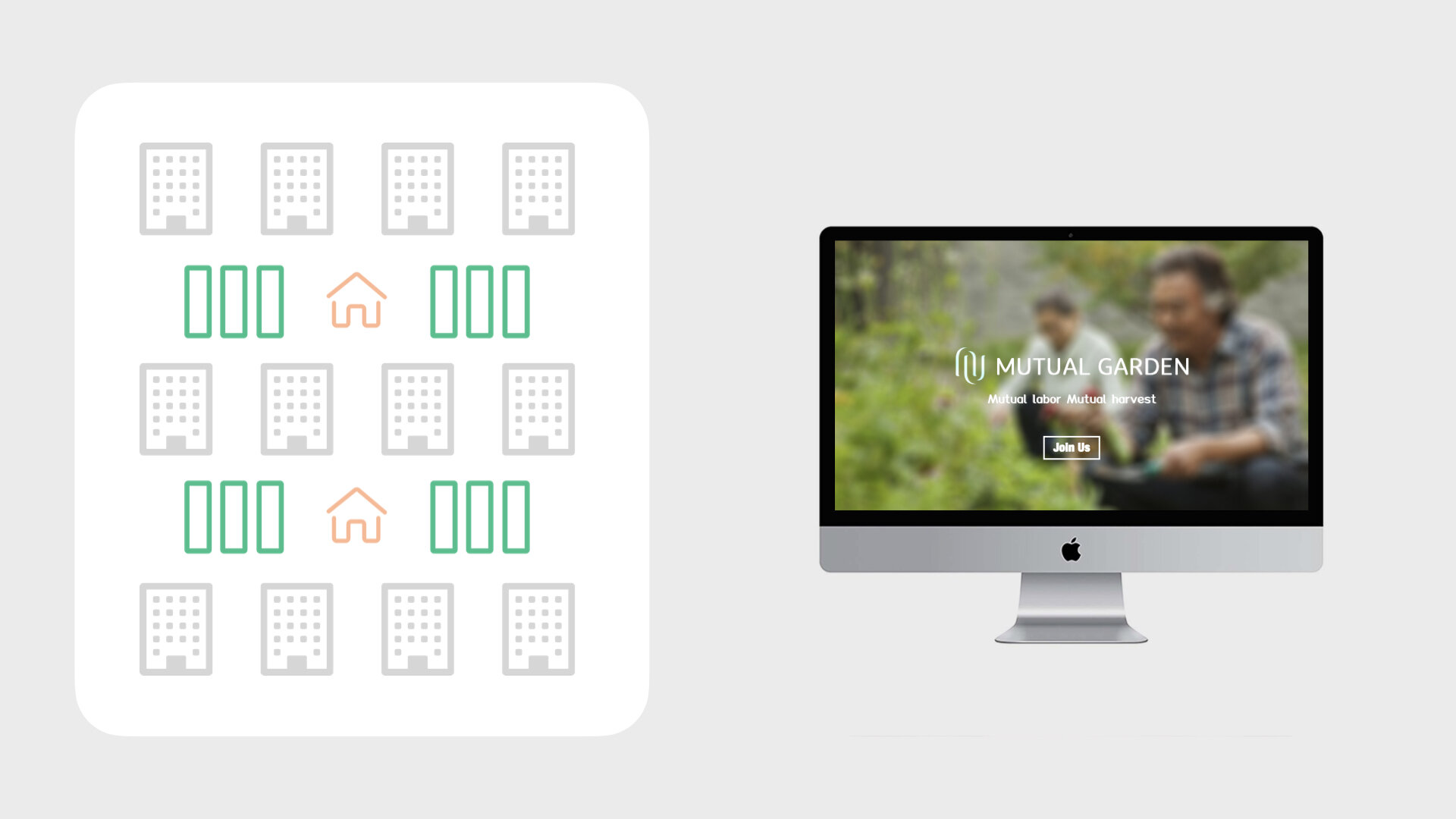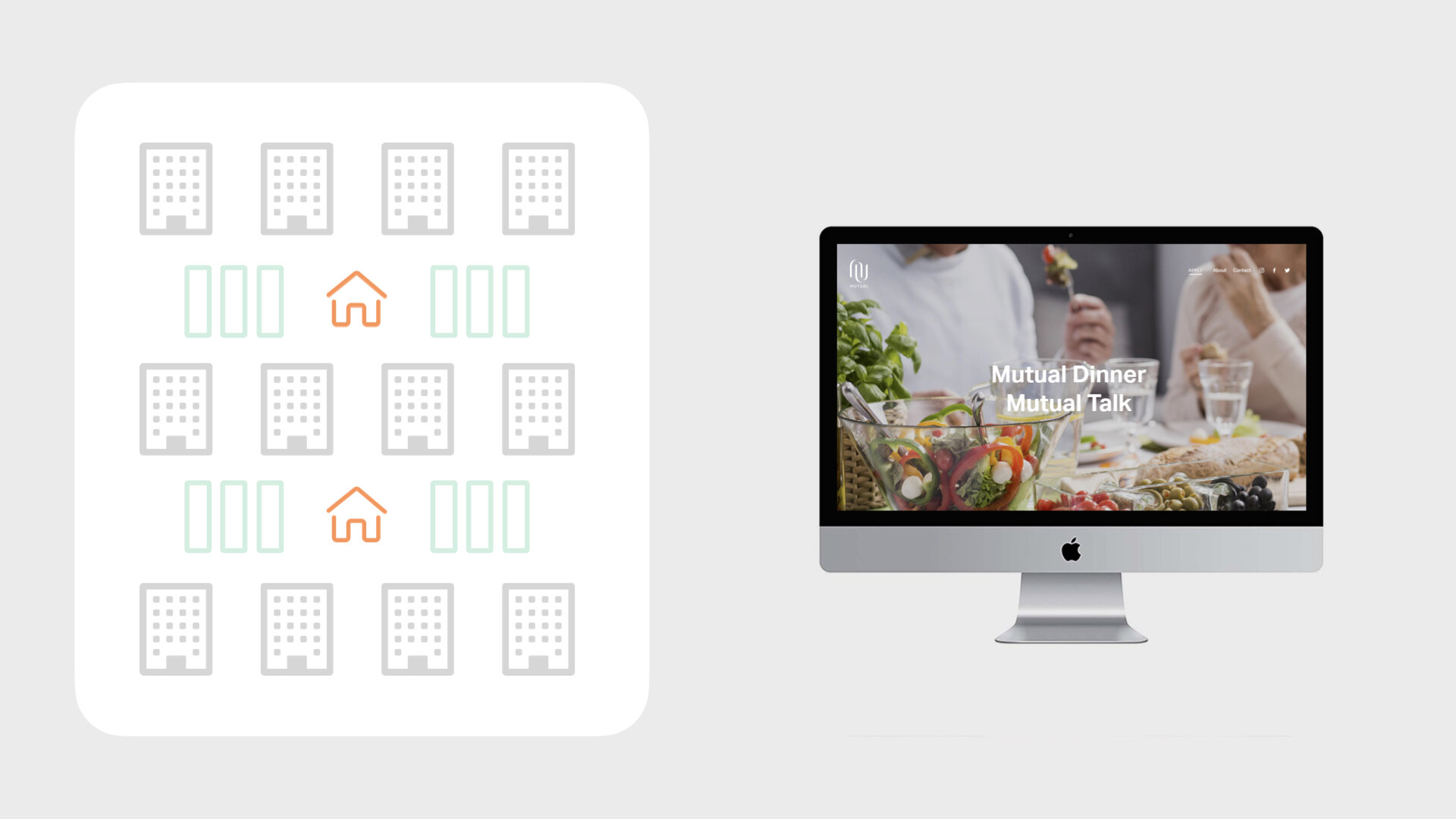Inter-Generate: A Set of Design Offerings for Chinese Empty Nesters
In his thesis, Inter-Generate: A Set of Design Offerings for Chinese Empty Nesters, Hang “Joey” Yuan deconstructs the "empty-nest syndrome" from three perspectives: medicine, interpersonal relationships, and philosophy. Joey argues that this is more than a syndrome —it's also a state of mind. Through his research, he discovered that sharing is an effective way to help the elderly change their negative mindset towards living apart from their adult children.
China has the world's largest elderly population. In 2022, China's elderly will account for 14% of the country's total population. By 2060, that number will grow to 35%. In other words, one in three Chinese people will be over the age of sixty-five. Through his research, Joey found that depression is a common problem in this population: Twenty-five percent of elderly people in China suffer from depression. The suicide rate for those who live in rural areas is particularly high.
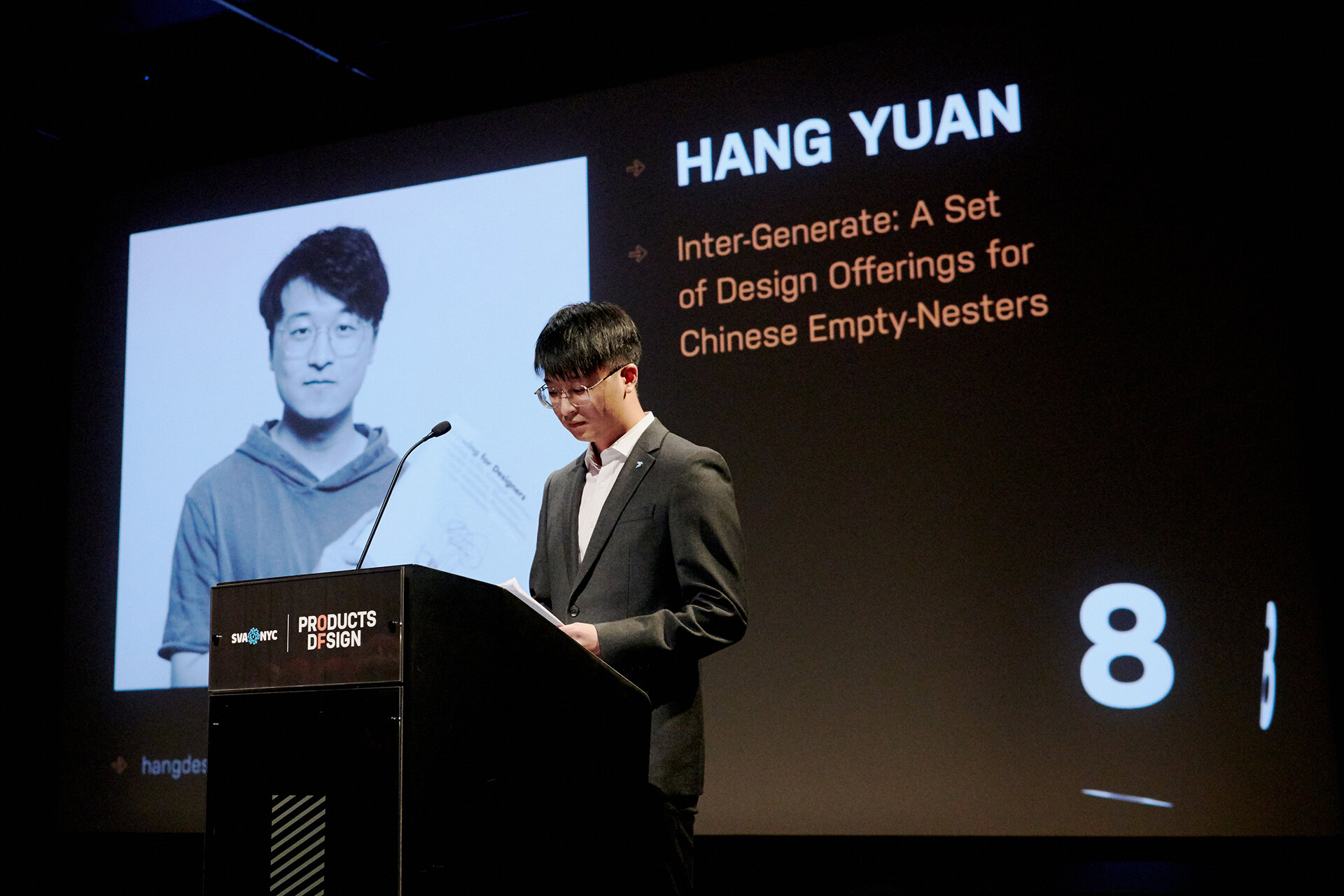
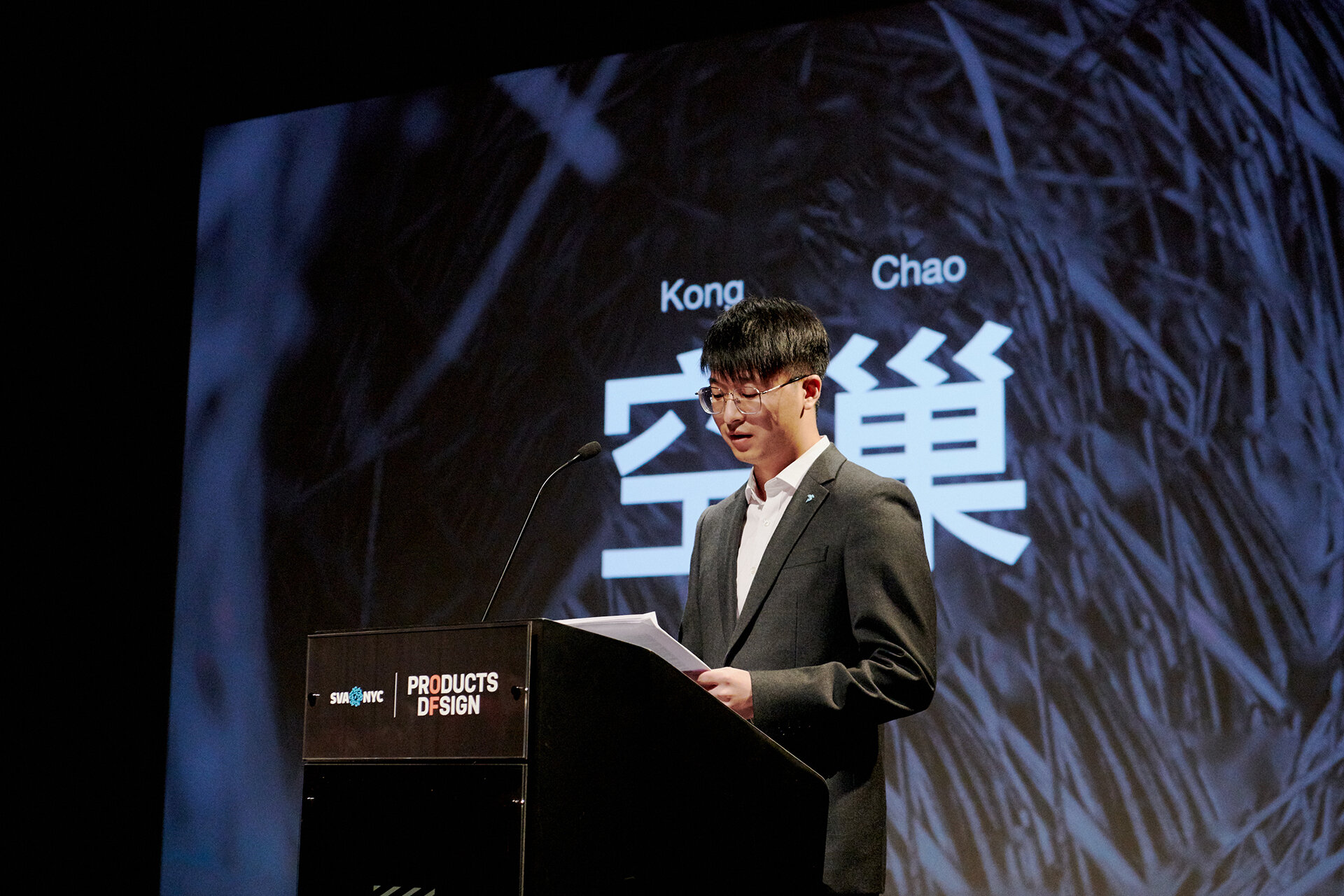
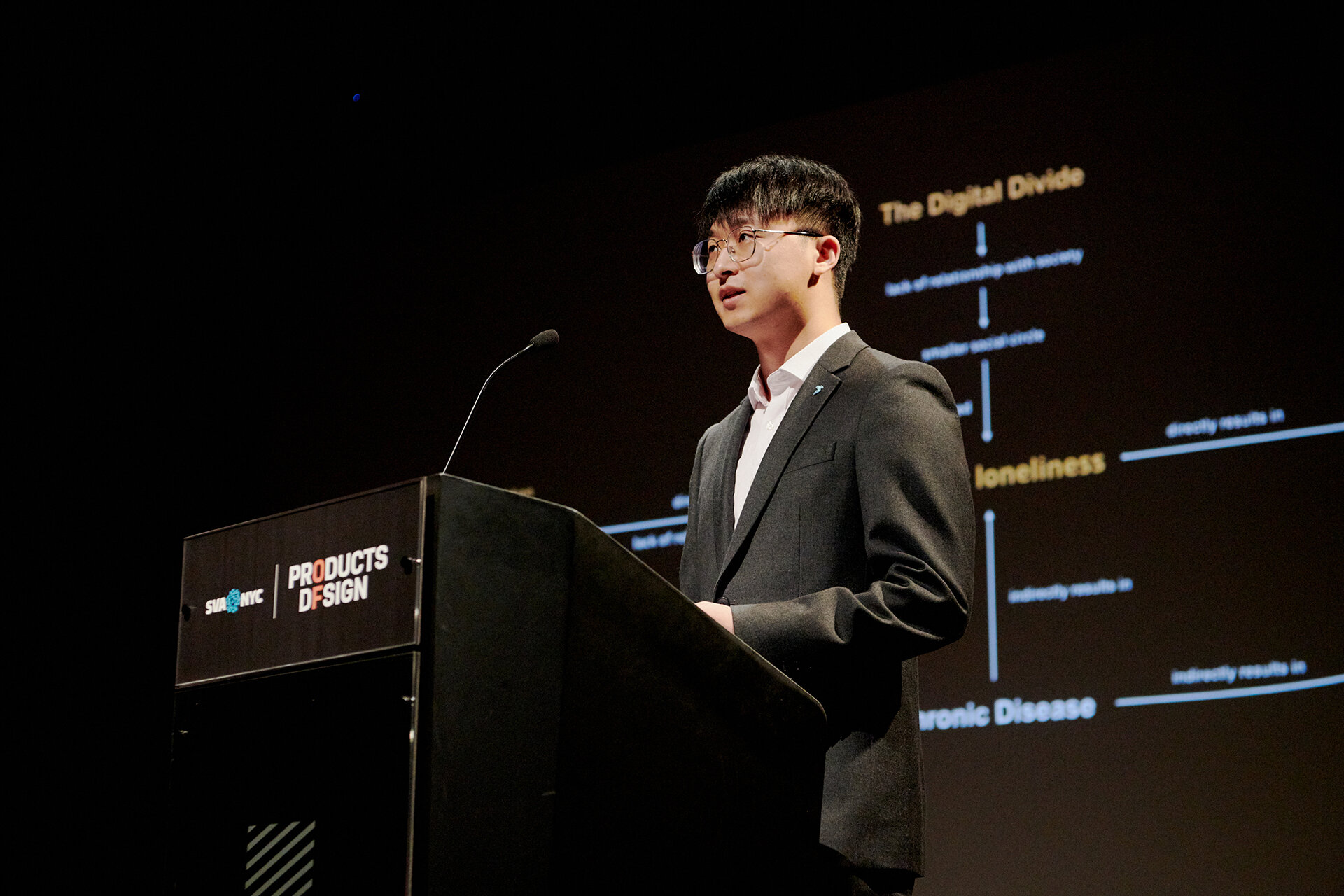
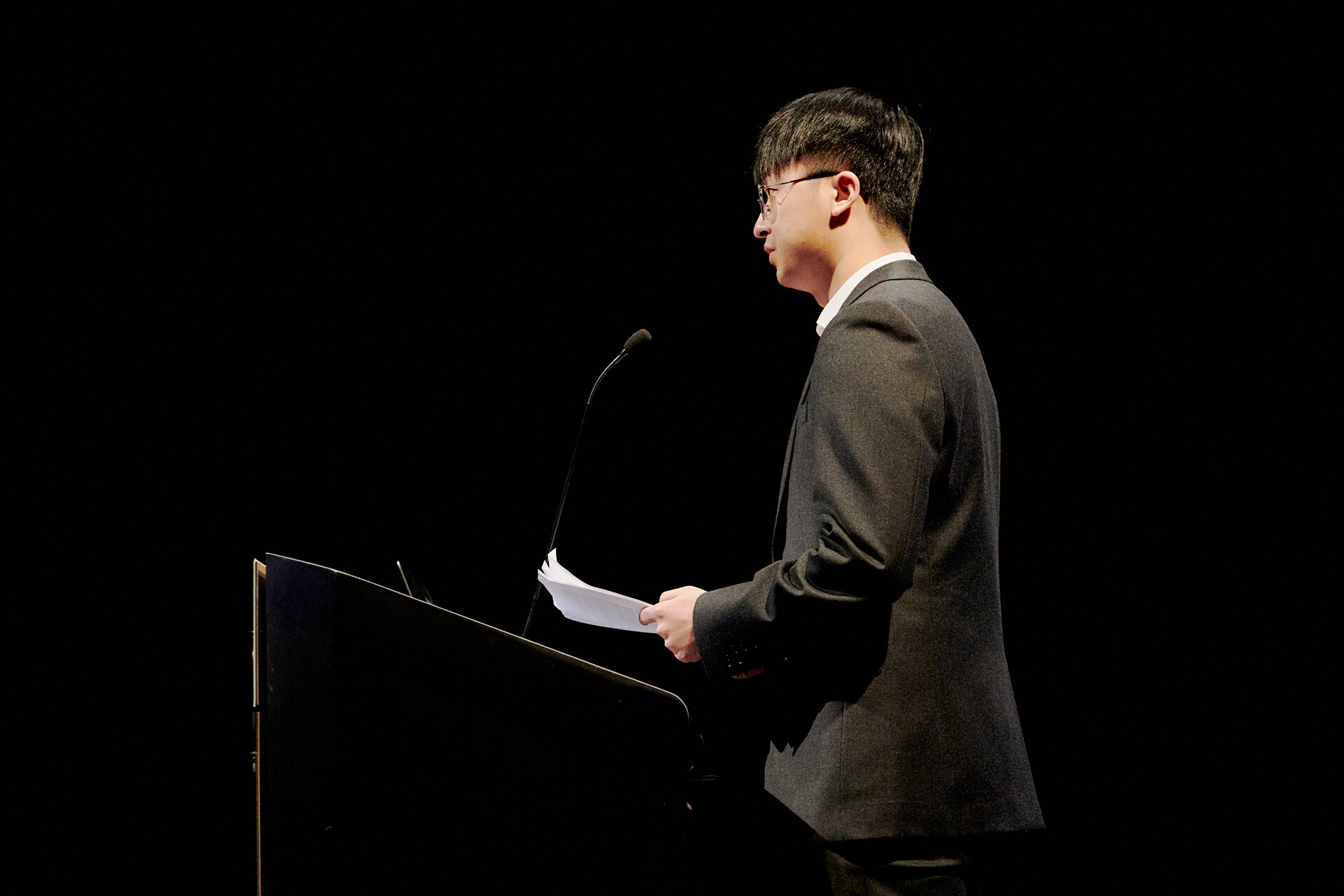
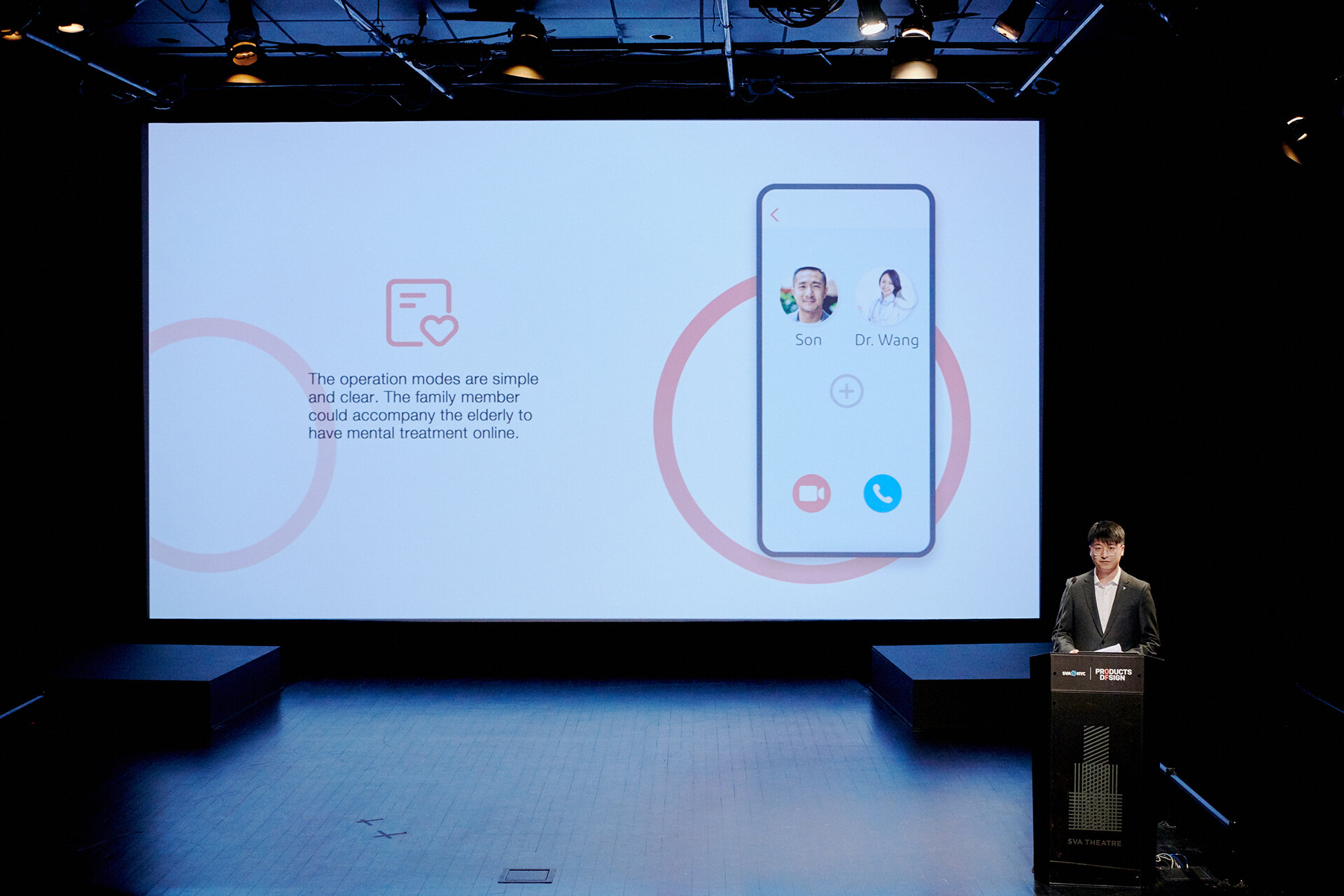
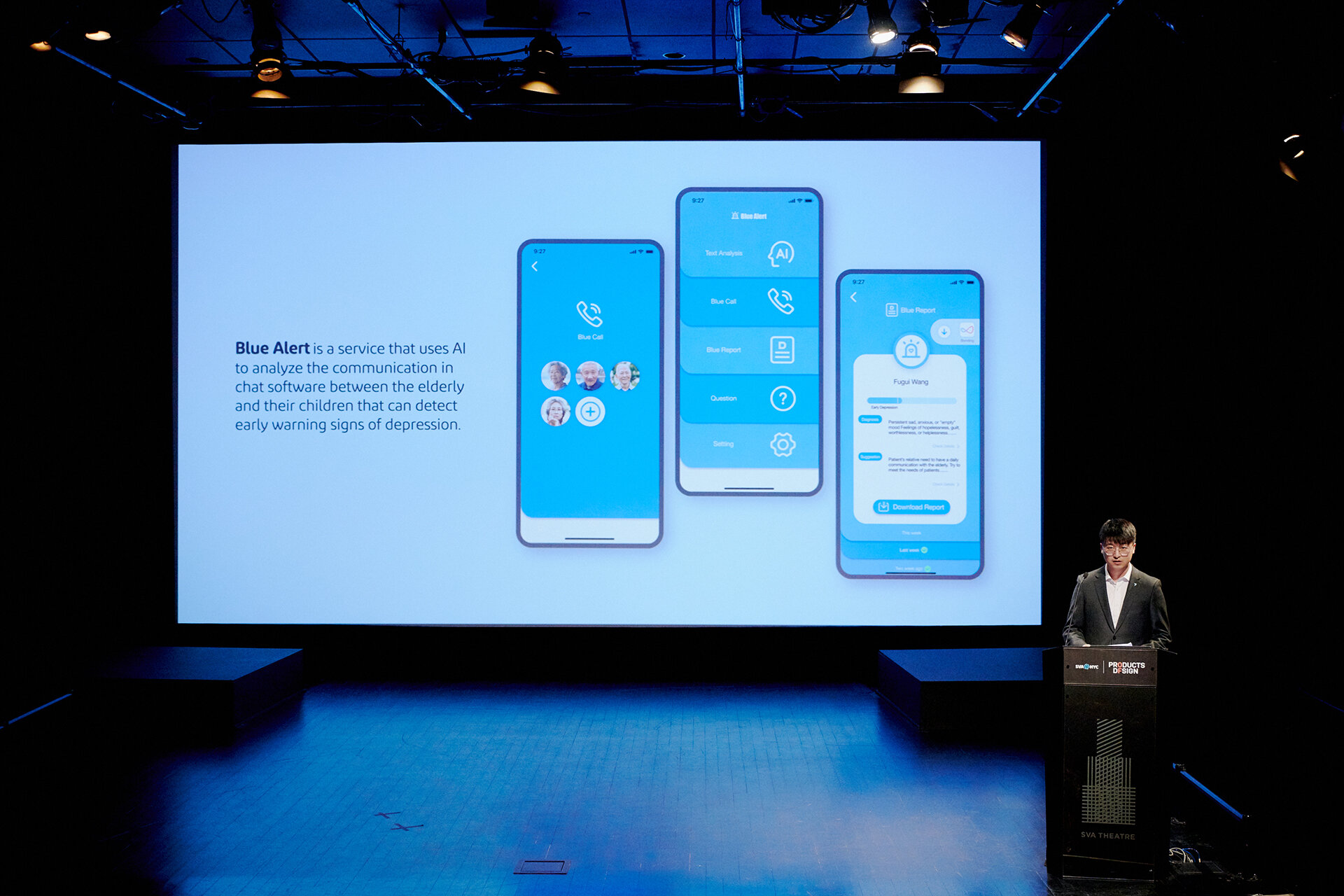
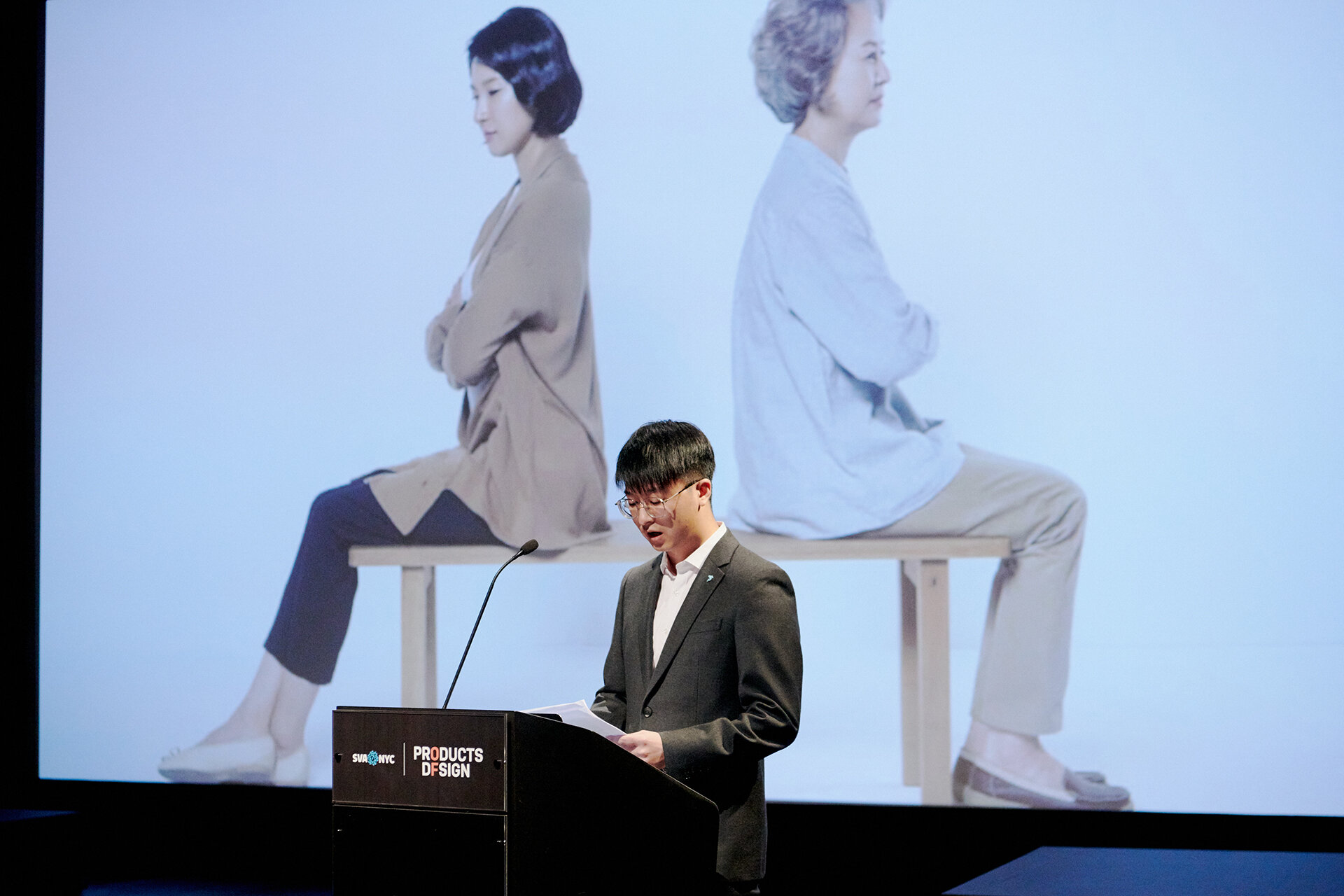
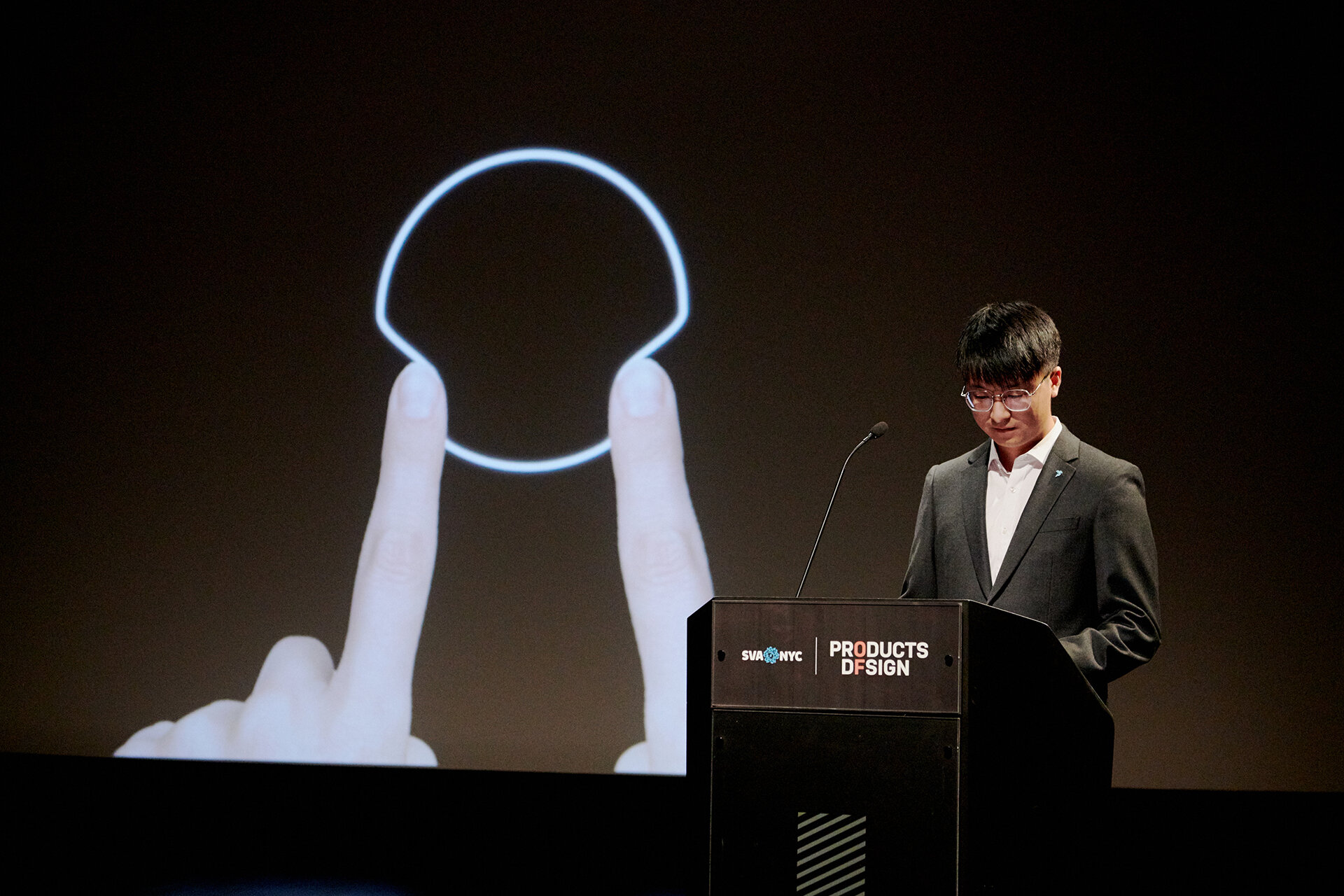
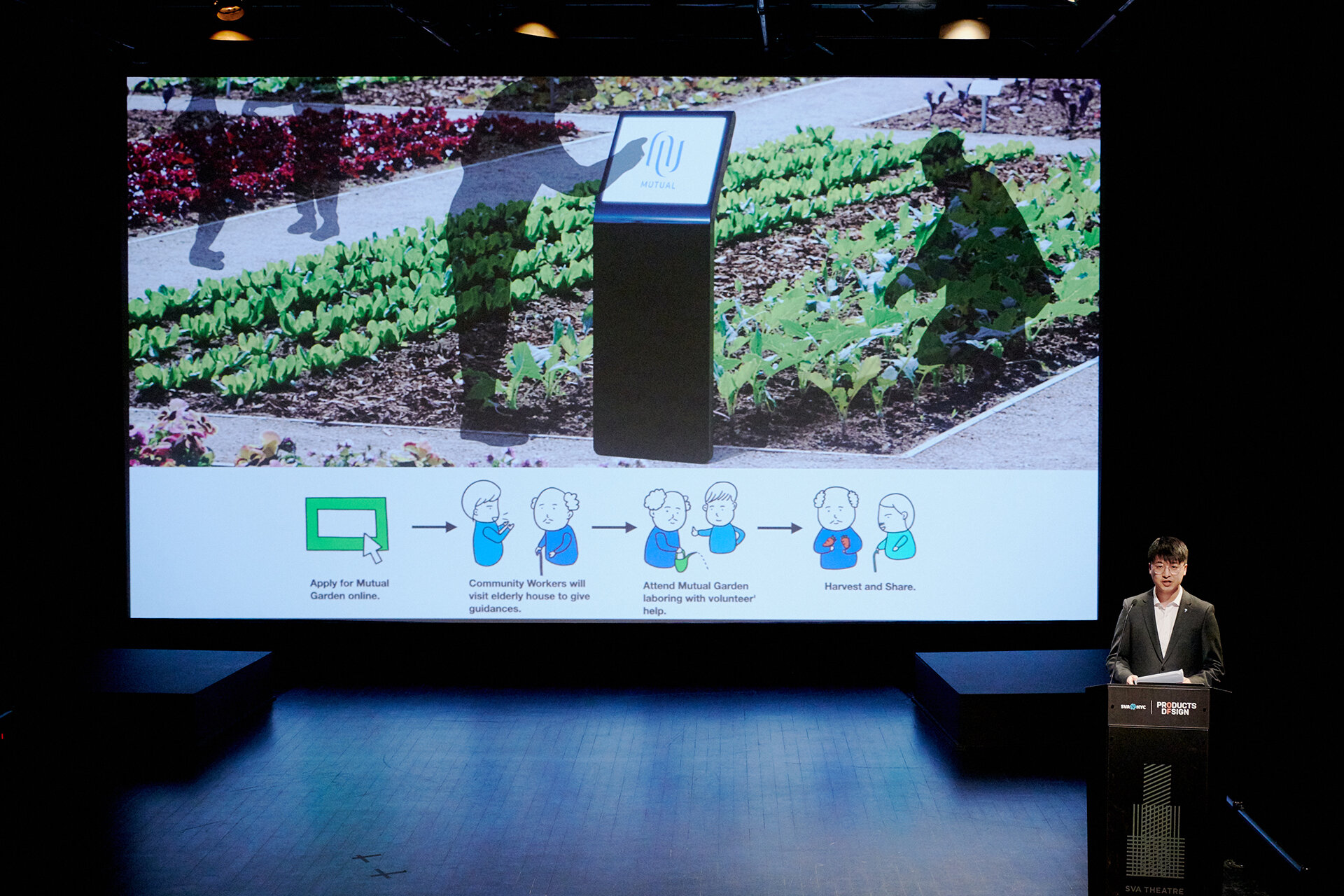
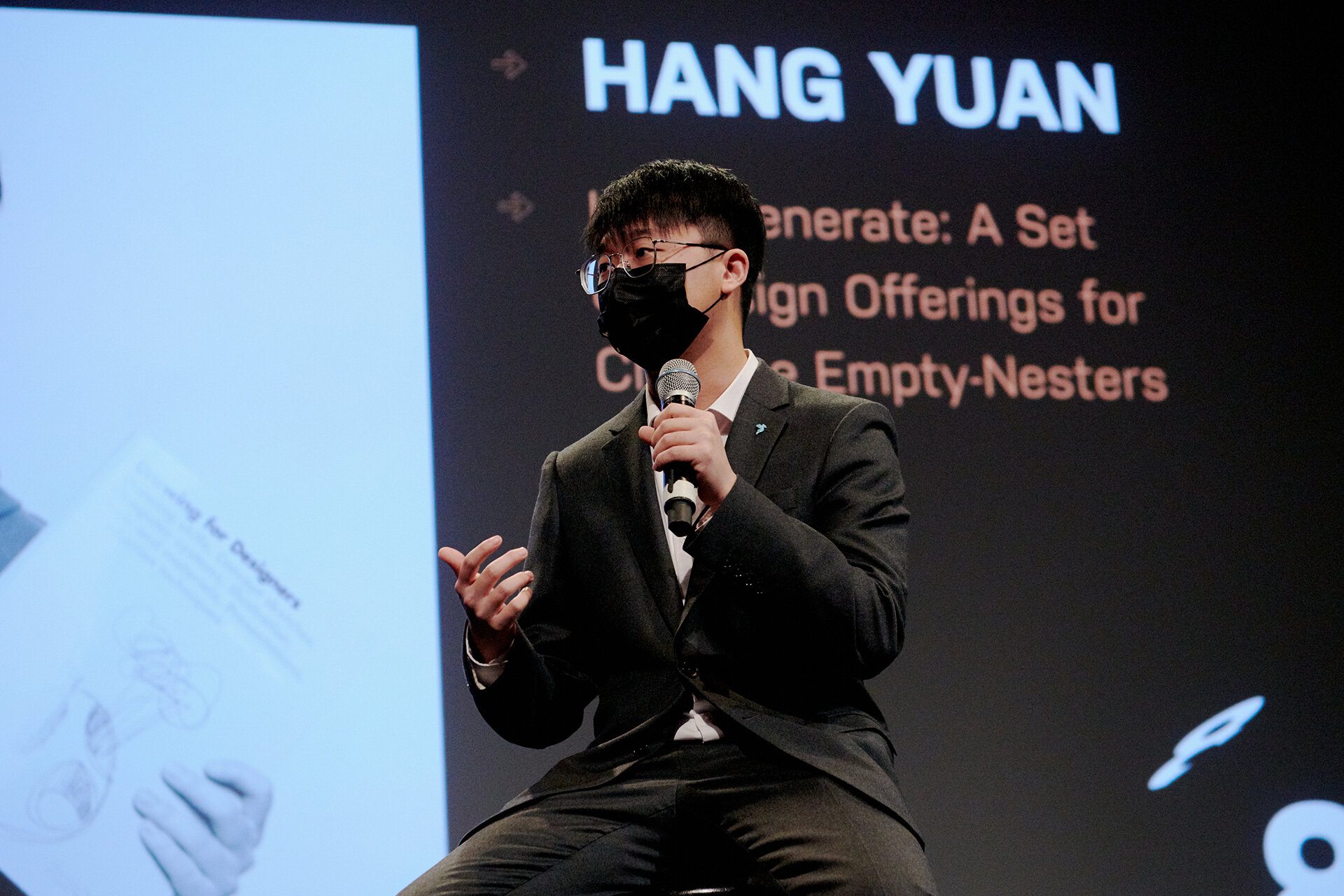
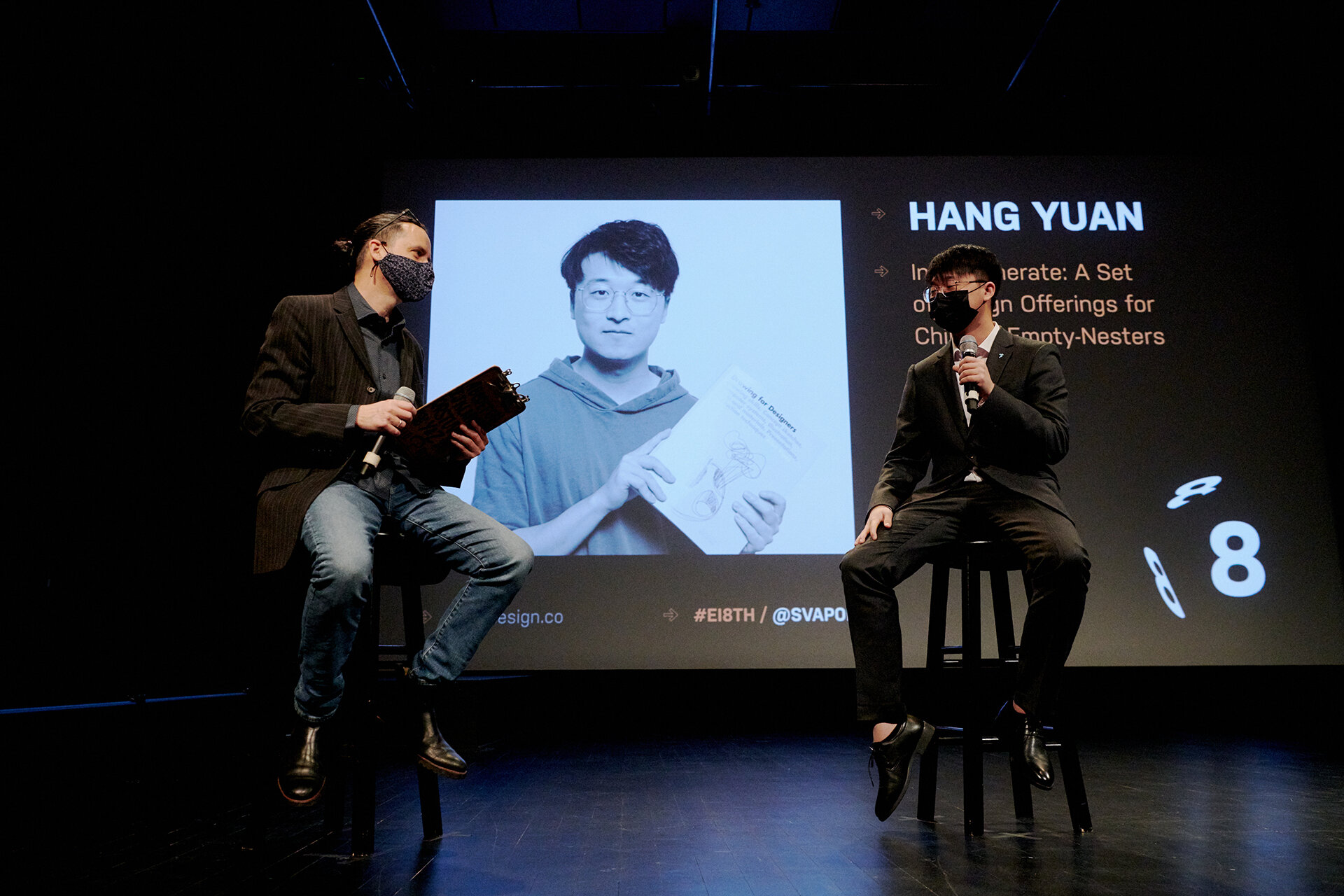
Joey’s thesis is designed for the elderly, who all deserve care and support. This suite of design projects simultaneously speaks to younger generations—to the children and grandchildren of the nation's elders. As Joey says, “Now is the time to take care of them.”
Bonding: A Mental Health Consulting Platform
Bonding is a mental health counseling platform designed to facilitate long-distance caregiving between Chinese empty-nesters and their adult children. The platform connects children, seniors, the local community, and psychotherapists. Through Bonding, the children can monitor their parents' mental health in daily life and, when necessary, guide their parents to find mental treatment on time.
When a user first downloads Bonding, they can choose a character—either a caregiving family member or an elderly parent who may need support. An adult child can use the Bonding platform to help their parents find expert therapists and counselors. An elderly person can use the app to accompany their child during online counseling if that's the right fit.
"Mental illness is not a result, but a process.”
–Changlin Lan, Chinese psychologist
Blue Alert: AI Medical Preventive Service
Joey created Blue Alert, a platform that takes advantage of AI technology to analyze messages exchanged between the elderly and their children to spot early warning signs of deteriorating mental health or depression. Blue Alert analyzes the text and the tone of chatting records and delivers weekly reports to the adult children. These reports can then serve as the basis for possible medical interventions.
Joey found that people with mental illness had a hard time acknowledging their suffering. To combat this challenge, Joey designed an IP character — "Blue Baby" — that reflects different mental states for the elderly. Personalizing depression and other mental health challenges in this way normalizes them. Blue Alert is more than just a "warning application." It is a reminder to pay attention to the mental health needs of one's parents.
Koan: Interactive Device for Long-distance Communication
Koan is an interactive device to help empty-nest families make a close connection across physical distance and language barriers. It consists of two parts. The first part is an app controlled by the children. The second is a physical object that hangs on the elderly person's wall with an instruction book explaining its basic shapes.
"If technology evolves quickly, older people may experience another digital gap." –Yuan Zhu, UX Professor
The adult children and the elderly can drag the circle line to customize the symbols and deliver different emotions to each other. This intriguing method enhances the daily interactions between the elderly and their children to maintain family intimacy.
Flashcards — Poker Cards for Easy Learning
Inspired by playing poker with his grandmother, Joey designed Flashcards, a simple poker game designed to teach people how to use smartphones and make it easier to memorize and practice operating tips. For the elderly to better absorb the information, Joey combined the poker cards with augmented reality. When users want more detailed information about a particular poker card, they can scan them with a phone. The app provides users with comprehensive information, including operating videos.
In addition, Joey plans to develop a version of the poker cards specifically designed for learning how to use Zoom or Wechat. Intergenerational games reduce the distance between family members and encourage new generations to tutor their grandparents to use modern technology and build their own social circles.
Charge: A Skill-sharing Platform for the Elderly
Retired people are actually eager to learn new things. However, they are often overwhelmed by the sheer volume of information on the Internet. When they turn to ask for help from their children, their children are frequently too busy to give their full attention, which leads to frustration. Charge is a skill-sharing platform allowing elderly users to upload videos about their skills and hobbies. If others "like" their videos, they can earn "fictional energy," which can be exchanged for some courses they are interested in. This inner loop keeps the platform energetic, giving everyone—elderly empty-nesters included—the opportunity to show their value to the world.
Mutual: Sharing Ecosystem Platform
The Mutual suite consists of two main parts: Mutual Kitchen and Mutual Garden. Mutual Kitchen is a public cooking platform for the community. People can bring their own food to cook together, taking advantage of the platform's professional cooking tools. When people cook together, it is a good time for them to communicate with each other.
To learn more about Hang “Joey” Yuan’s work, take a look at his projects in more detail at hangdesign.co.








